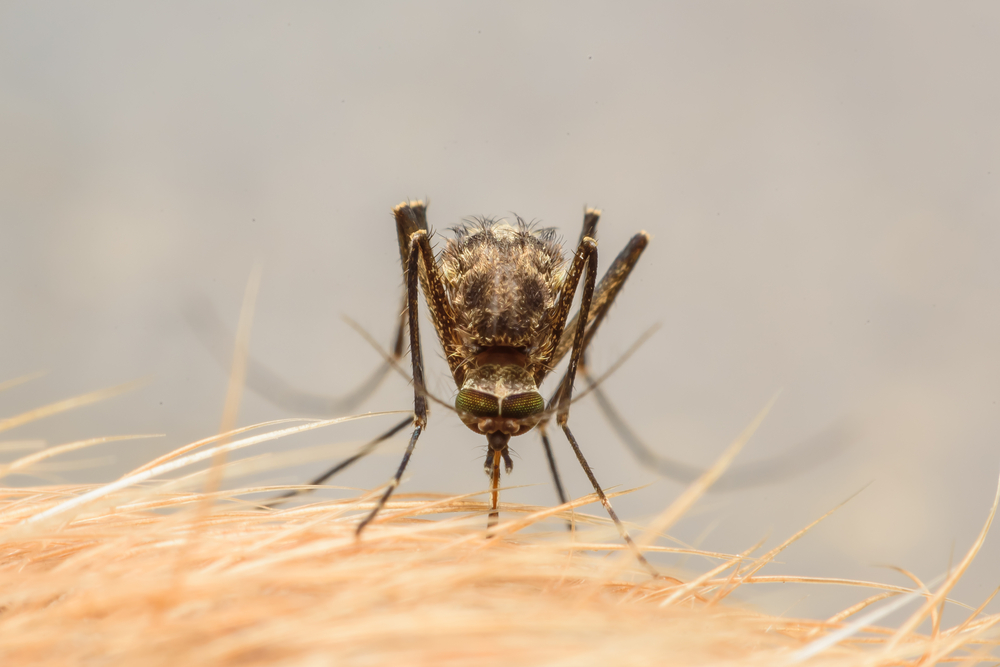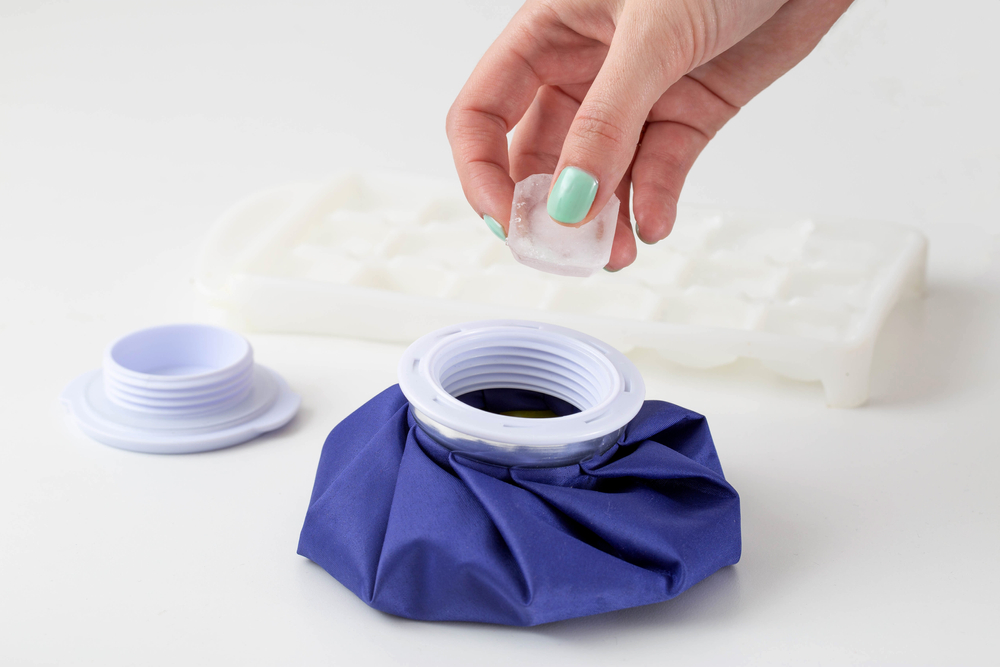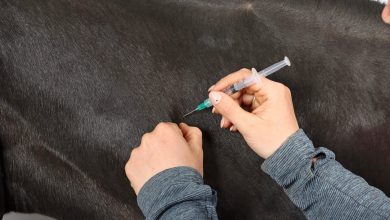How to Treat Mosquito Bites on Dogs: 5 Vet-Approved Options

Mosquito bites aren’t just annoying to humans. They can also be extremely irritating to dogs. Your dog is likely to scratch or lick the affected area, but continuous scratching can end up exacerbating mosquito bites and even lead to skin infections.
Dogs are just as susceptible to mosquito bites as humans, so it’s important to know what to do if your dog gets bitten. Fortunately, there are several at-home remedies you can try to alleviate itchiness and reduce scratching. Here are a few things you can do to keep your dog from scratching and worsening mosquito bites.


The 5 Treatments for Mosquito Bites on Dogs
1. Cold Compress
Using a cold compress on mosquito bites can help reduce swelling and alleviate itchiness temporarily. It usually works best if you apply it right after your dog gets bitten.
If you don’t have an ice pack, you can make your own cold compress by putting some ice into a plastic zip-lock bag or using a bag of frozen peas, and covering it with a paper towel or thin piece of cloth. You can also run cold water on the bite, but avoid putting ice directly onto the bite, as this can end up being more irritating and painful for your dog. Cold compresses can be left on the site of the bite for 10–15 minutes if your dog tolerates it well.


2. Anti-Itch Ointment for Dogs
With insect bites being a common occurrence for dogs, you can find many different kinds of anti-itch ointments for dogs. Therefore, refrain from using anti-itch products for humans because they may contain ingredients that are unsafe for dogs. These ingredients can end up worsening the itch or can be harmful if ingested.
Many anti-itch ointments are over-the-counter medicines and readily available at your local pet supply store. However, if your dog has a pre-existing health condition or allergies, consult your veterinarian before buying one of these products. Your veterinarian can help you determine which product will be safest and most effective for your dog.
3. Baking Soda Paste
Baking soda paste is an at-home remedy that can help soothe irritating bug bites. All you need is 1 tablespoon of baking soda and just enough water to create a paste that you can apply over the mosquito bite. Once you cover the bite with baking soda paste, have your dog sit or lie still for 10 minutes and distract them with a chew or treat. You can rinse off the paste with water once the 10 minutes are up.


4. E-Collar
Scratching mosquito bites can end up wounding the skin, which can lead to bleeding and skin infections. Therefore, it’s important to prevent your dog from itching or licking mosquito bites. If your dog has a particular fixation on the mosquito bite, it can be helpful to use an e-collar to prevent your dog from licking the area. Loose T-shirts can also be used to cover an area and help prevent trauma from scratching.
5. Allergy Medication
Some dogs may have allergic reactions to bug bites. If your dog is allergic to bug bites, it’s a good idea to consult with your vet about whether there are medications you can have to hand during the warmer months to help prevent allergic reactions.
Antihistamines, such as diphenhydramine, cetirizine, and loratadine, are over-the-counter medicines that can be used on dogs. Just make sure to get clearance from your vet before giving medicine to your dog. Your vet can let you know what types of antihistamines are safe for your dog and the appropriate dosages for them.




When to Go to the Vet
Most cases of mosquito bites can be treated at home without veterinary intervention. However, there are rare cases where your dog needs to see a vet or receive emergency care.
The first thing to be mindful of is allergic reactions. While uncommon, some dogs can have an allergic reaction from a mosquito bite. Allergic reactions can get dangerous if your dog experiences anaphylaxis, a severe reaction which can cause extreme swelling and close up your dog’s airways. Signs of anaphylaxis include hives, swollen face or muzzle, excessive salivation, and difficulty breathing.
It’s also important to note that mosquitoes can be hosts of other diseases and parasites. Heartworms can be transmitted via mosquito bites, so make sure your dog is taking their heartworm medication regularly. Mosquitoes are also carriers of West Nile virus. Although dogs are susceptible to infection with this virus, they are more resistant to disease than humans and it is rare that otherwise healthy dogs become ill. If your dog gets bitten in an area with cases of West Nile virus, contact your vet for advice.
Overall, if you notice any strange behaviors from your dog or see that the bite is worsening, make sure to take your dog to your vet.

Conclusion
It’s best to be proactive about reducing your dog’s exposure to mosquitoes as much as possible and treat any mosquito bites early. Make sure to check your dog’s skin for mosquito bites during the summer months, especially if they’ve walked through an area with a significant number of mosquitoes.
You can try to apply anti-itch ointments on the affected areas to prevent itching, and reduce the trauma of scratching and licking by using an E-collar or loose T-shirt. Don’t hesitate to contact your vet if you notice the irritation is not resolving quickly or the affected area is worsening.
Featured Image Credit: ArtLovePhoto, Shutterstock



